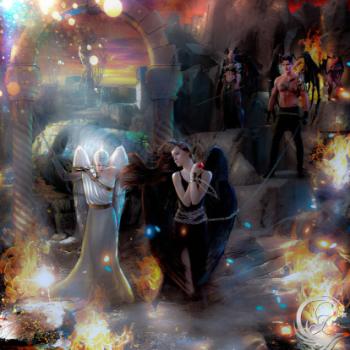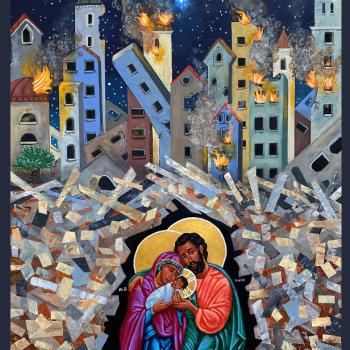And one more thing. God is not through working in the political forces of the world. "Once again, in a little while, I will shake the heavens and the earth and the sea and the dry land, and I will shake all the nations, so that the treasure of all nations shall come, and I will fill this house with splendor" (Haggai 2:6-7). Is this a specific reference to the accession of Darius, succeeding Cambyses, or is it a more general claim that God is the God of the new and the possible? Perhaps it is both.
I do not believe that Haggai is saying only that the rebuilt temple in Jerusalem will one day be far better than Solomon's first temple in splendor and riches (Haggai 2:8-9). That would make Haggai little better than a prophet of prosperity. At the end of the day, any temple whether in Jerusalem, or New York, or Dallas, means precisely nothing unless it celebrates, announces, yea trumpets the living reality of the God of freedom who is working in the world for the freedom and hope of God's people. Thus, I would say that Haggai is not so different from his 8th- and 7th-century prophetic forebears after all.
The next time we gaze at our own temples, our churches, our houses of worship, we ought not judge them on the size of their steeples, the splendor of their pipe organs, or the grandeur and number of their classrooms. Do they speak to the world that God is there? Do they shout the truth of the freedom-making God? Only on those bases can any such places be judged.





